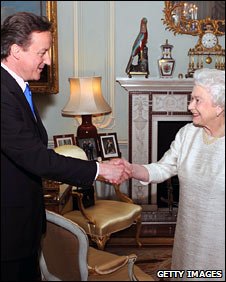[from the Royal United Services Institute]
Nick Clegg’s statement that it is time to ‘turn the page on the default Atlanticism’ of successive British governments highlights a growing unease over the UK’s most important alliance. However, the true debate is not about the merits of the alliance but Britain’s position in the world.
By John Hemmings for RUSI.org
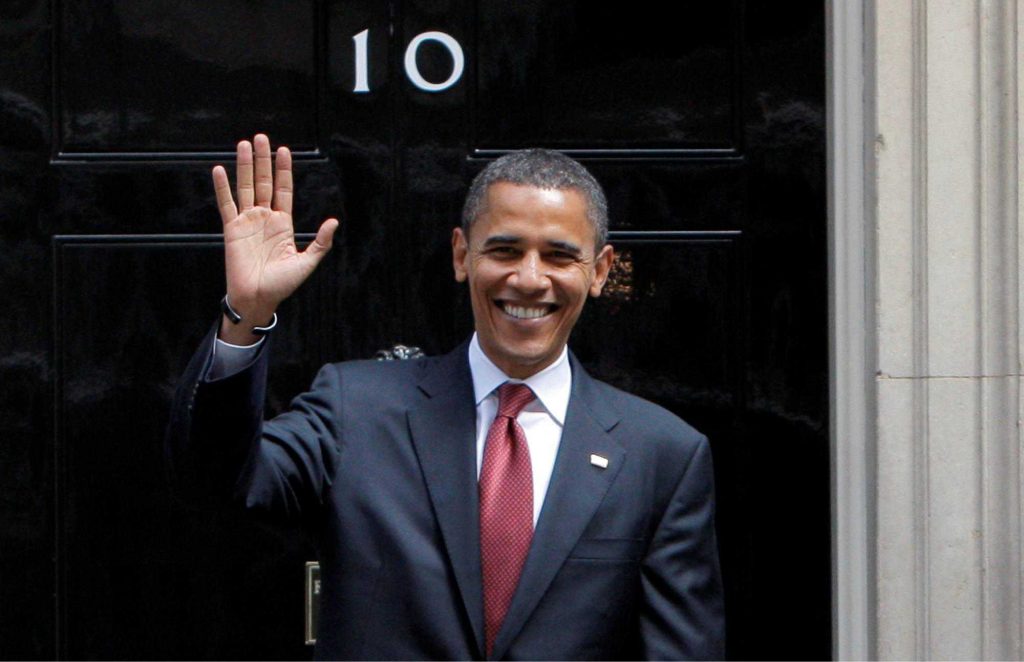
The UK-US alliance is a deeply-entrenched one, vital to Britain’s security interests and central to the nation’s position in the world. But is it under threat? Is the ‘special relationship’ no longer as special as it once was or is this merely a narrative driven by an over-anxious media? Certainly, reporting on the subject this side of the Atlantic would seem to suggest that there are serious problems, structural as well as cosmetic. On the cosmetic side, the lack of warmth between Gordon Brown and Barack Obama has been seized upon as evidence of a failing relationship. In addition, the last two years have seen a number of complications – insignificant on their own – but in combination add to this sense of crisis. These have included the release of Al Megrahi, the man convicted of the Lockerbie bombing; the extradition to the US of Gary McKinnon, the British hacker diagnosed with autism; and remarks made by Hillary Clinton implying that the US supported Argentinean attempts to reopen negotiations over the Falkland Islands.
The structural architecture of the relationship
The ‘special relationship’ should not and cannot be understood as merely the relationship between a given president and prime minister. This part of the alliance is simply too cyclical, based as it is on the continual shift of democratic elections. Far more significant is the structural side of the ‘special relationship’. Birthed during war and shaped by the UK-USA Security Agreement, the military and security side of the alliance is arguably the ‘bread and butter’ of this bond and perhaps the real reason the relationship is described as special.[1] Since 1943, the US and UK have developed a complex network of close links between their defence and intelligence communities. These communities regularly grant privileged access to intelligence, planning and defence development that would be unthinkable between most other states. Personnel develop strong working relationship and contacts due to the high number of secondments within each others’ organisations. While relationships between Foreign Ministers and Heads of State wax and wane, the real partnerships take place in Whitehall and Foggy Bottom, in Langley and Vauxhall Cross, and in the combined command structures in Kabul.
There are some disturbing signs that this structural side of the special relationship is now being reconsidered due to changes in the strategic environment: the removal of the Soviet Union as a strategic competitor, the rise of Islamic fundamentalism and the growing variance in approach. The rise of China, distant from British shores, has revealed a gap in security priorities between the two. While China’s growing military assertiveness is a cause for consternation for American and Japanese policy-makers, Britons and their EU counterparts continue to view the relationship with China as an economic one. Furthermore, not all recent UK-US cooperation has been fruitful: the perception – real or supposed – of an inferior capability of British forces in Basra and Helmand seems to undermine the benefits of being seen as a faithful ally. Are British contributions being taken seriously, or even worse, do they truly deserve to be?
The British role in the world
Within the defence community in the UK, some of these questions are causing a rethink of the relationship: a recent RUSI survey of defence specialists found that nearly one-third of respondents disagreed with the proposition that a relationship with the United States, maintained above all others, best served British interests. While a finding of this kind taken from a sample of the British public might not be surprising following the deeply unpopular Iraq War, it is disturbing to find it so prevalent in the defence community, given the fact that the two sides are active partners engaged in an ongoing conflict. One cannot imagine drawing such results during the heady days of the Second World War. However one wonders if the ‘greatest generation’ would have taken such a poll in the first place. The predicted cuts to British defence spending and the potential, though unlikely, unilateral withdrawal of its independent nuclear deterrent – a point of debate in the 2010 election – mean that the UK’s future capability to partner with the US is now a concern on both sides of the Atlantic. A recent paper by Professor Malcolm Chalmers indicates that this scale-down could seriously impact the British ability to ‘punch above our weight’ in global politics.
Has Britain effectively managed to answer Dean Acheson’s slightly belittling question: ‘What is Britain’s role in the dusk of Empire?’ American thinker Walter Russell Mead points to the historical British role in shaping the modern world and says that this explains Britain’s post-war alignment with US policy-makers.[2] Following the Imperial drawdown, it was not that Britain chose to subvert itself to US policy-makers, but rather that Britain chose to partner with the US because of the similarities in long-term political and economic objectives.
To some extent, the Cold War revealed a major alignment of US and UK political assumptions about free market economics, the desirability of liberal democracy, and support for international organisations as a preventative of major-state conflict. While thinkers on both sides of the Atlantic debated the details, the commonality of these assumptions set the two states apart from even their closest allies. The question that is now being asked on both sides of the Atlantic is a good one: do these assumptions still hold, and do they play a major role in deciding the security priorities of both states? Despite the election of a US President who seems to share many British and European positions on nuclear weapons, multilateralism, and a preference for diplomatic over military solutions, the Tea Party syndrome and popularity of right-wing figures like Vice Presidential candidate Sarah Palin indicate a growing chasm between the US and the UK political culture. Furthermore, the financial scandal has raised the spectre of US protectionism of its home market, though this has yet to turn into a reality.
A true partner
Expectations must not be allowed to build beyond what is possible between the two states. Britain is in the strange position of having been surpassed by its own construct, but can and should still continue to contribute to a political discussion that it initiated. The deficit between the two has not been merely in hard power or trade but also in self-confidence. Arguably, the current malaise is not at all about the relationship, but about Britain losing sight of its vital role in building and maintaining the free market principles, the international institutions, and the political values that underpin the global order. With the rise of superpower economies – Brazil, Russia, India, and China – the United States does not need a subordinate, neither does it want a go-it-alone Britain, it needs a true intellectual partner. In defence terms, the UK will have to make difficult choices, but these need not be permanent. It must refrain from underselling its defence and intelligence contribution to the partnership: Britain’s part has been praised by senior US political and military leaders, as well as the many troops on the ground. There may be major disagreements on the details of process or planning but that is a consequence of working so closely together on complex issues, rather than a systematic failure and should be treated as such. The main problem arises when political leaders on either side of the Atlantic, use these differences for domestic reasons. The reality of the relationship is quite promising: away from the anxious eyes of the press, away from the political heads, the relationship is extremely functional, and under the twin pressures of Islamic fundamentalism and insurgency, interoperability within the defence and intelligence communities has never been better.
It is easy to view the relationship in terms of its failings, but the simple fact is that the ‘special relationship’ is the envy of most other US partners, and has a unique place in history. The US cannot decide Britain’s role for it, but whatever the UK decides, the US needs a strong and faithful ally.
The views expressed above are the author’s own, and do not necessarily reflect those of RUSI.
NOTES
1. This sharing includes New Zealand, Canada, and Australia, so technically they are part of the ‘special relationship’.
2. Walter Russell Meade, God and Gold: Britain, America and the Making of the Modern World’ (2009)
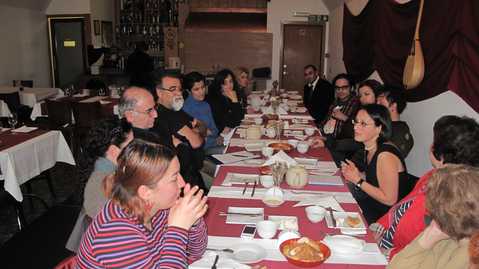


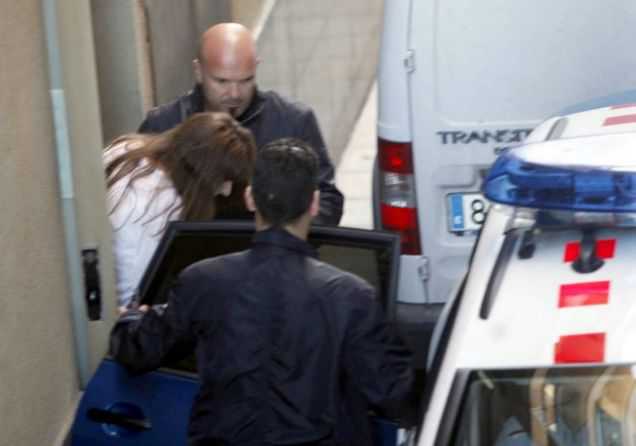


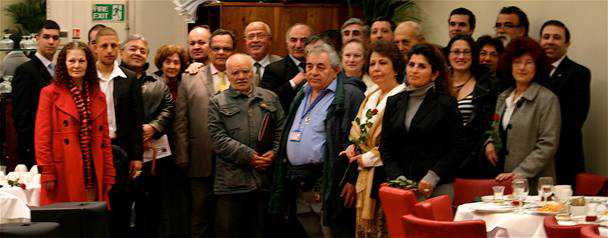 Turkish and Turkish Cypriot NGOs to unite and form stronger lobby task force
Turkish and Turkish Cypriot NGOs to unite and form stronger lobby task force